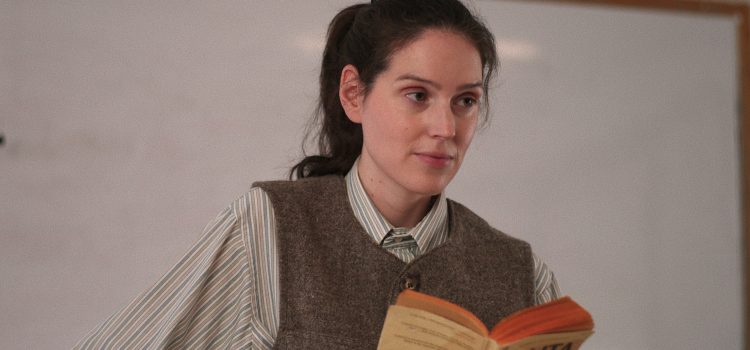By Alex McPherson
Exploring sensitive subject matter with grace and humor, director Eva Victor’s “Sorry, Baby” vividly captures the aftermath of trauma while underlining human resilience and small, unexpected joys that pave the way to hope — largely eschewing melodrama for tenderly observed truth that achieves universality despite the story’s specificity.
Victor’s film, their feature debut, is told in several chapters presented non-chronologically, each devoted to a year. The wry, warm, and precocious Agnes (Victor) is a junior English professor working at a small New England university. Agnes is well-liked by their students but feels stuck physically and emotionally as the world changes around them.
They still live in the same house they shared in grad school with their best friend Lydie (a radiant Naomi Ackie), who has since moved to New York and is now expecting a baby with her partner.
When Lydie visits Agnes, it’s almost as if she never left. They share a deep friendship built on years of trust and camaraderie, yet there’s a reluctance to discuss the past. Melancholy seeps in among each lingering pause and soft inquiry into how Agnes is really doing. A dinner party with former classmates brings painful memories to the surface, specifically a reference to their former thesis mentor, Preston Decker (Louis Cancelmi).
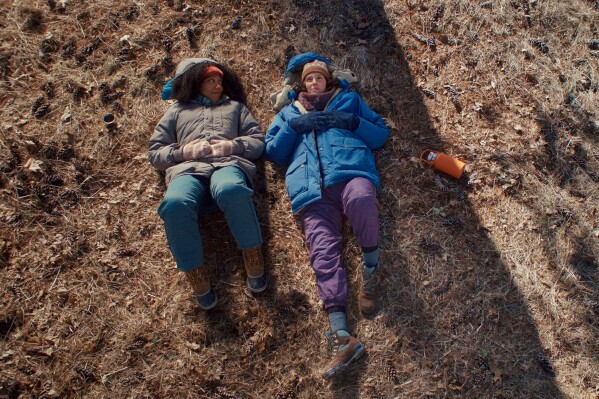
In the next chapter, set four years earlier, we learn what happened. While Victor positions the event as a surprise, it’s fairly easy to deduce from the opening scenes. Preston, lavishing praise on Agnes’s writing, later sexually assaulted her at his house, profoundly changing how Agnes engages with the world and with herself.
The rest of “Sorry, Baby,” essentially told as a series of vignettes, charts their painful, raw, but also life-affirming path to healing.
With bursts of unexpected humor, Victor illustrates fluctuations of empathy and apathy in a world that often refuses to listen, showing Agnes’s resilience each step of the way in a manner that’s not sensationalized or manipulative for the sake of easy resolution.
Indeed, “Sorry, Baby” thrives on its naturalism, capturing both a visceral void and unexpected levity that reflect the unpredictable rhythms of reality. Victor’s film is also a call to consider the different ways each of us experiences the world, and the weight that listening — both to others and to ourselves — carries as we navigate uncertain times.
Victor is remarkable in their portrayal of Agnes, radiating warmth and awkward likability while subtly showing the sadness, anxiety, and fear bubbling beneath the image Agnes displays to the world.
This is revealed in quieter moments where they exist in surroundings both familiar and rendered foreign by the past. It’s an exceptional performance that balances droll comedy with heartbreaking vulnerability, often within the same scene.
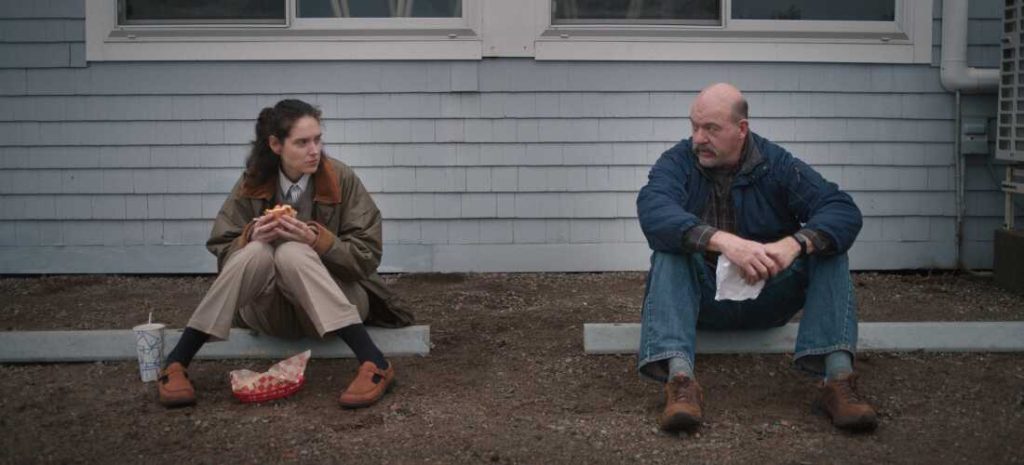
Agnes uses humor to cope and navigate the subtle and not-so-subtle triggers they encounter as the days pass, and Victor’s performance layers tragedy with quiet bravery; Agnes, emotionally damaged though they are, still exists, aware of the emotional minefield that lies before them every day, but persisting regardless.
They hold onto small serendipities — like finding a stray kitten on the street or bonding with a gruff yet wise sandwich shop owner after a panic attack — that bring some light, a recognition that they are capable of being understood.
For all of the sadness at the core of “Sorry, Baby,” it’s worth emphasizing that the film is often funny, as Victor acerbically points out the absurdities and hypocrisies over how society treats Agnes after her assault — from detached doctors and school administrators to the more subtle pressures placed on her by her neighbor-turned-friend-with-benefits Gavin (Lucas Hedges).
The humor is often uncomfortable and near-satirical at points, as Victor encourages us to laugh but also to recognize the deeper injustices at play. They never let these laughs, irreverent though they sometimes are, distract from the drama and themes at the film’s core.
Victor’s filmmaking, too, is remarkably accomplished, bringing us into Agnes’s world without showing us happenings we don’t need to see, and gradually building its own visual vocabulary for expressing Agnes’s trauma.
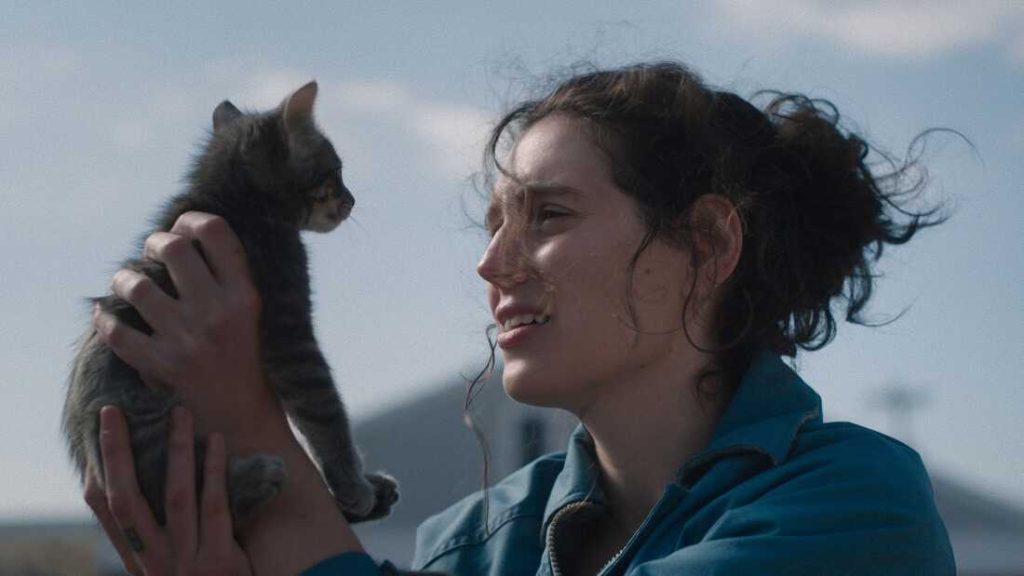
Mia Cioffi’s cinematography emphasizes empty space as Agnes goes about her days, sometimes patiently, nerve-wrackingly drifting over her surroundings as if there’s some unknown presence nearby, watching and judging them.
Victor doesn’t show the assault itself either, thankfully. Rather, we wait outside Preston’s house as the time of day changes, following Agnes as they drive home and eventually explain what happened in detail to Lydie, who stays by their side as all good friends should. Victor trusts us to believe Agnes and to appreciate her struggles without talking down to us, and the film is all the more powerful for it.
“Sorry, Baby,” then, with its sobering story and tonal swerves, is quite an experience. Victor weaves conflicting emotions together in a far more lifelike way than most films in recent memory.
The few spare scenes where they go slightly off-track into exaggeration and exposition-reliant storytelling stick out, but this ranks among the most essential films of the year thus far, and a much-needed reminder of compassion and the ways we should listen to each other as we battle our own demons.
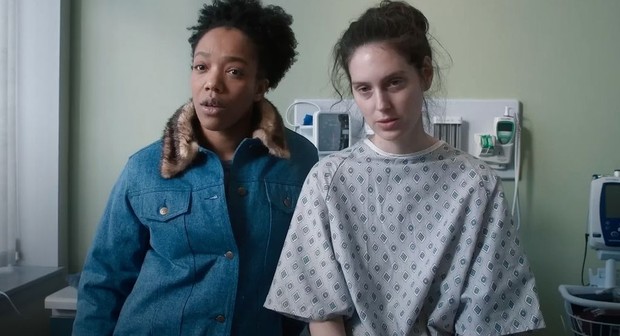
:”Sorry, Baby” is a 2025 dark comedy-drama written and directed by Eva Victor, produced by Oscar-winning filmmaker Barry Jenkins, and starring Victor, Naomi Ackie, Lucas Hedges and Louis Cancelmi. Rated R for sexual content and language, the film is 1 hour, 43 minutes, and is in theatres July 25. Alex’s Grade: A.
Alex McPherson is an unabashed pop culture nerd and a member of the St. Louis Film Critics Association.

